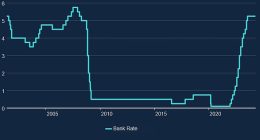
When a child tests positive for Covid-19, it presents challenges for the whole family. Parents must care for the sick child while also trying to prevent the illness from spreading, and look out for their own health as well. Most kids experience mild symptoms, but some do develop serious illness. And even with a mild infection, isolation can bring boredom and stress.
Here’s what doctors recommend.
Should you visit a pediatrician after getting a positive result?
To lessen the risk of exposure to others, a telehealth appointment is usually the best approach, says Bessey Geevarghese, a pediatric infectious disease physician for Lurie Children’s at Northwestern Medicine Central DuPage Hospital in Winfield, Ill. Talk to a pediatrician about what to expect during the illness and come up with a plan to try to keep other family members from getting infected.
When should you seek additional medical attention for your child?
Don’t hesitate to contact your doctor again if you’re concerned about something. Seek immediate medical attention if your child displays breathing problems. Other red flags include not tolerating food or drink, acting lethargic, or a persistent fever that lasts longer than 7 days, says Ibukun Akinboyo, assistant professor of pediatrics at Duke University. Infants with a high fever for multiple days can have a harder time replenishing fluid and are more likely to need intravenous fluids, she adds.
Should household members without symptoms get tested? Do we all need to quarantine?
The CDC recommends testing close contacts of infected people, which would include anyone they live with. Quarantine as soon as you learn your child has tested positive—don’t risk exposing others while you are awaiting your test results. Even if you do test negative, many health departments ask household members to complete a 14-day quarantine from the last day of exposure regardless, in part because test results can vary depending on timing. In some instances, the CDC provides household members with options for a shorter 10-day quarantine or a 7-day quarantine with a negative test result. Both options require continued monitoring of symptoms for the full 14 days. And people who are fully vaccinated within the past three months and haven’t shown symptoms since their Covid exposure aren’t generally required to quarantine. But you should also consult with your doctor and local health authorities.




